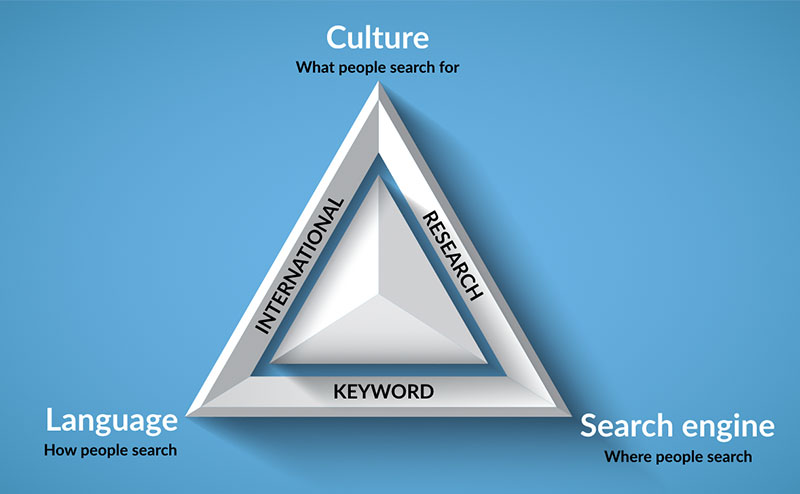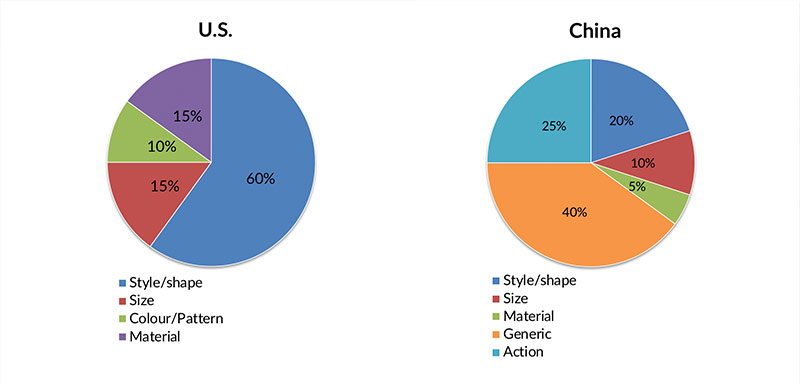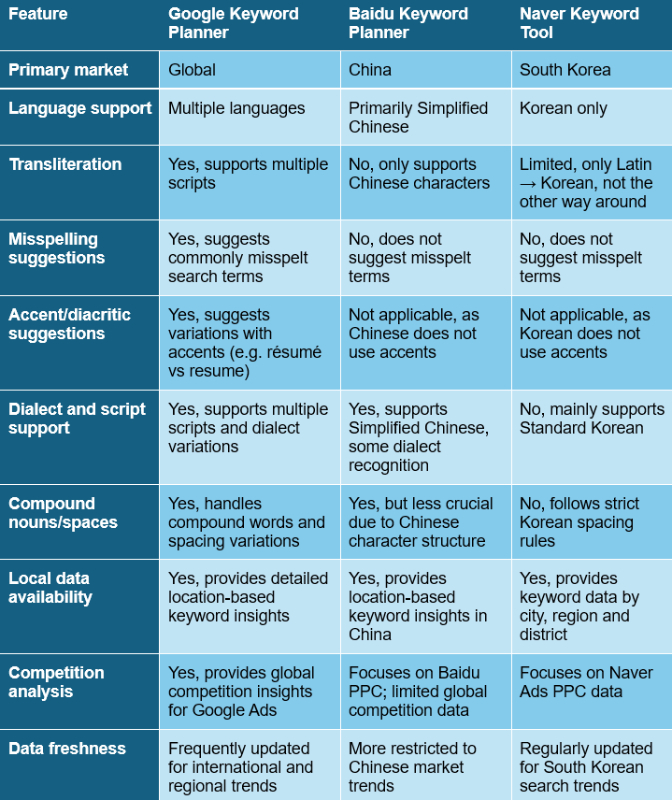
This blog post was updated on 25 March 2025.
I am sure you know that translating keywords from one country and language to another is a big no-no, but do you know what you need to do instead? For international businesses, it is really important to adopt a holistic, 3D approach when it comes to international keyword research. This consists of incorporating three dimensions in the research phase: the culture, the language, and the search engine. Let’s take a closer look at each one of these.

Culture: What people search for
The cultural dimension refers to what people search for, as cultural factors influence the way people formulate online queries. Culture defines the social structure of the environment you live in, and the way in which you perceive the world. For example, when people search for the term “chair” online, in Google (English settings) 60% of total search volumes are about the shapes/style of the chair. However, 40% of the results in Baidu for the same term are about an action – i.e. what you want to do with the chair.

Language: How people search
This dimension refers to how people search – i.e. how they phrase their queries – which is determined by their language structure. Sometimes, users split compound nouns when searching online, misspell words, or drop accents. When carrying out international keyword research, it is therefore important to check volumes for both versions of a word. It is not advisable to misspell words on your website in the hope of attracting more traffic, but bidding on both the correct and incorrect forms when it comes to paid search campaigns could be a successful approach for some languages and search engines.

Search engine: Where people search
This dimension refers to where people search. Search engines were first designed for a specific market, and often a specific language. As a result, they behave differently with different languages, and they each have their own unique keyword tool, such as Google Keyword Planner, Baidu Keyword Planner and Naver Keyword Tool. These will help you to find the most accurate keywords for your campaign, but bear in mind that different ones return different information and suit specific contexts. A native linguist will be able to help you make the most of the appropriate search engine for your international campaign.

Want to learn more?
I hope this blog post has given you a useful introduction to how to do international keyword research. For more in-depth information and advice, read my full-length guide here. The guide covers:
- how a person’s culture affects what they search for online
- how a person’s language affects how they search online
- how Google, Baidu and Naver’s keyword research tools differ








3 responses
nice article. Thanx you for giving the basic idea of how to do an international seo.
Thanks for sharing the comprehensive post, your post having informative valuable content will be helpful.
Thank you for giving the valuable Information really awesome.